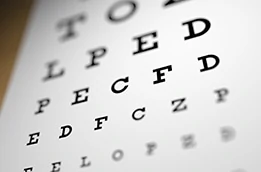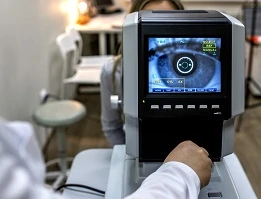Are you a LASIK Candidate? 5 guidelines you should know

Who can get LASIK?
If you need glasses or contacts to see well, it is likely you have imagined what life would be like to be able to see without them. You have probably thought: Should I get LASIK? And, you may have wondered if you could be a good candidate. It is an important question because LASIK is an elective procedure, not a medical necessity. Glasses or contact lenses are options, which have their own associated risks. Each person has to weigh the inherent risks and benefits to decide how to handle their vision correction needs and if a laser vision correction procedure is right for them. An important deciding factor in choosing laser vision correction is the surgeon’s recommendation, which is based on whether or not a patient is a good LASIK candidate.
Who is not a candidate for LASIK?
It isn’t well understood, but not everyone who wants LASIK should have it. In fact, on average between 15 and 20 percent of patients are considered ineligible for LASIK. However, there have been many advances in the field of vision correction surgery, which means that if a patient isn’t a good candidate for LASIK, it is very possible there is a different type of eye correction surgery that will give them the benefit of having great vision without needing to rely on glasses or contact lenses. People are most familiar with LASIK, which is why the conversation around vision correction procedures often begins with it.
Who is a good candidate for LASIK?
While every patient is unique, the following are 5 general guidelines surgeons use in determining if a patient is a candidate for LASIK eye surgery:
- Prescriptions within FDA-approved treatment parameters
- Occular maturity, prescription stability, and eye health
- General Health
- Corneal shape and thickness
- Realistic expectations
1. Prescriptions within FDA-approved treatment parameters
Do your eyeglass prescriptions fall within the treatable range? Your eye surgeon will be looking for these LASIK prescription requirements:
- up to +6.00 diopters of hyperopia,
- up to 6 diopters of cylinder/astigmatism
- up to -12.00 diopters of nearsightedness
2. Occular maturity, prescription stability, and eye health
- LASIK is FDA-approved for people aged 18 and older who have achieved ocular maturity.
- A stable prescription, meaning your prescription hasn’t changed for at least two consecutive years.
- It is important for eyes to be generally healthy, free of diseases, injuries, and infections.
3. General health
Certain health issues and medications may interfere with the healing process, making laser vision correction a poor choice. It is important patients share their complete health history with their surgeon to ensure a recommendation for candidacy based on all available facts. Determining if you are a LASIK candidate requires a complete eye examination that includes a series of sophisticated tests to screen patients for these problems that may make you a non-candidate.
There are several absolute contraindications to LASIK. Many patients are not good candidates for laser vision correction because of systemic or ocular disease. Conditions, such as cataracts, diabetes, or autoimmune diseases like lupus or rheumatoid arthritis, may make LASIK and other laser vision correction options not a good choice for some patients. Also, certain medications, such as corticosteroids, acne medications, and pregnancy can affect the healing process. Being upfront with the LASIK surgeon that you chose about your medications and health history is necessary to get an accurate answer to the question: “should I have LASIK?”
4. Corneal shape and thickness
How does LASIK work? LASIK improves your vision by reshaping your cornea – the surface of the eye that helps focus light to create an image on the retina. If your cornea is too thin or misshapen, or if you have eye diseases like significant glaucoma or corneal scarring you are likely not a candidate for LASIK. During your initial consultation, your ophthalmologist will measure the thickness of the cornea to make sure there is enough tissue for the reshaping required to achieve the desired amount of correction.
5. Realistic expectations
Understanding the limitations of laser vision correction is important to a satisfactory outcome. Patients with unrealistic or uninformed expectations for LASIK recovery, the procedure, and results may not achieve their goals with an elective laser vision correction procedure like LASIK.
Part of knowing if you should have LASIK is understanding if you are a good or even excellent candidate for the procedure. The best way to determine if you are a candidate for LASIK is to work with a highly qualified surgeon and have a complete evaluation of your eyes and vision. Then both you and your surgeon will have the information needed to make the best recommendation for you. Learn more about what to expect from a LASIK consultation.




